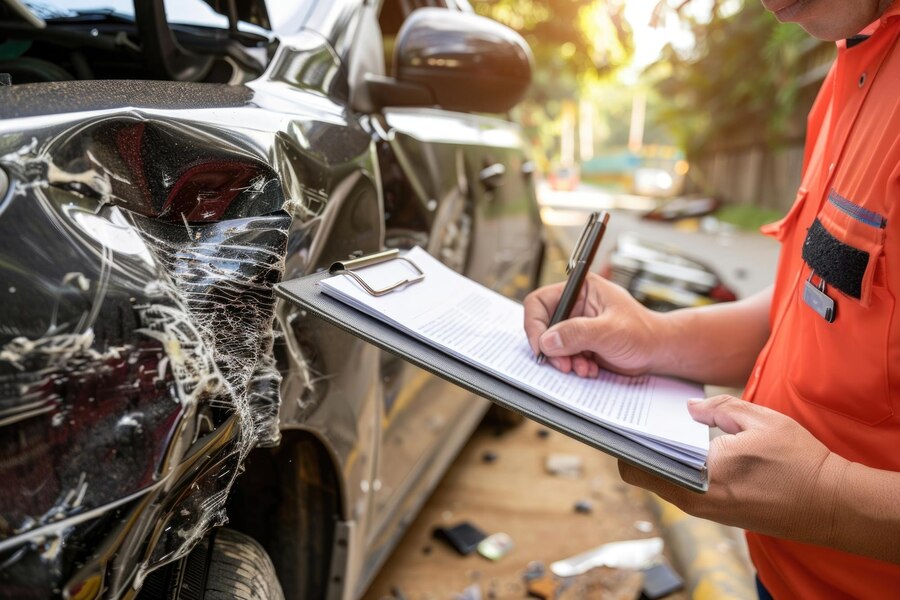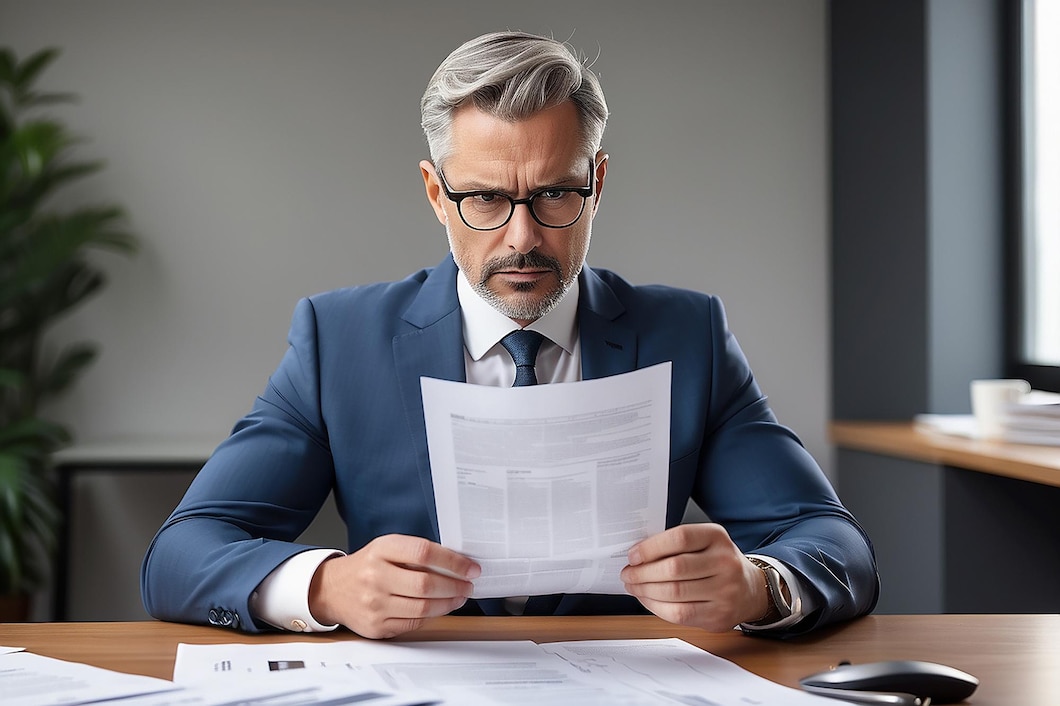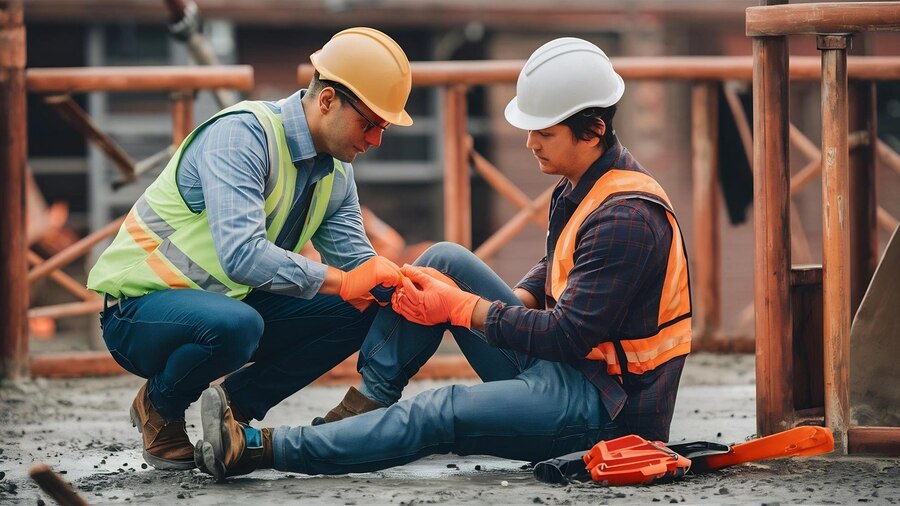What to Do After a Car Accident: Legal Steps to Take Immediately

Car accidents can happen in the blink of an eye and leave you feeling shocked, confused, and unsure about what to do next. Whether it’s a minor fender-bender or a major collision, knowing the right legal steps to take after a car accident can protect your rights and ensure you receive the compensation you deserve. This guide outlines the most important legal actions to take immediately after a car accident, so you’re not left vulnerable in a difficult time.
1. Prioritize Safety and Medical Attention
The very first step after a car accident is to ensure that everyone is safe. Check yourself and others for injuries. If someone is hurt, call emergency services right away. Even if the injuries appear minor, it’s important to seek medical attention. Not only does this protect your health, but medical records also serve as vital evidence in any legal or insurance claim.
In many cases, injuries such as whiplash or internal trauma don’t show immediate symptoms. By seeing a doctor right after the crash, you create a timeline that clearly links the accident to your injuries, which will help you if you later need to file a personal injury claim.
2. Call the Police and File a Report
No matter how minor the accident may seem, you should always contact the police. A police report is an official document that can support your insurance claim or lawsuit. The responding officer will document the scene, collect statements, and may even issue citations. All this information can be critical if there’s a dispute about who was at fault.
Ask the officer for their name, badge number, and a copy or number of the report. If you plan to pursue legal action, your attorney will likely rely on this report as a foundation for your case.
3. Gather Evidence at the Scene
If you’re physically able, begin documenting the scene immediately. Use your phone to take photos and videos of:
- Vehicle damage
- Skid marks or road debris
- Traffic signs and signals
- The other driver’s license plate
- Any visible injuries
- The overall accident scene from different angles
Also, collect contact information from witnesses, including names and phone numbers. Witness testimony can be powerful in determining fault, especially if there are no surveillance videos or the other driver disputes your version of events.
4. Exchange Information with the Other Driver
After ensuring everyone is safe and the authorities are on the way, exchange information with the other driver. Be sure to collect:
- Full name and contact information
- Insurance company and policy number
- Driver’s license and license plate number
- Make, model, and color of their vehicle
However, avoid admitting fault or apologizing, even if you feel partially responsible. Statements made at the scene can be used against you later. Simply stick to the facts and let the investigation determine liability.
5. Report the Accident to Your Insurance Company
It’s essential to notify your insurance company as soon as possible, even if you think the other driver is at fault. Provide a basic account of what happened and send any photos or documentation you’ve collected. Cooperate with your insurer but avoid giving recorded statements or signing anything without legal advice—especially if you’re injured or believe you may need to file a claim.
Insurance companies are businesses first. They may try to minimize payouts or find ways to deny your claim. Always read documents carefully, and don’t be afraid to consult with an attorney before proceeding.
6. Don’t Accept a Quick Settlement
Many insurance companies will offer a quick settlement to avoid larger payouts later. If you’ve suffered injuries or property loss, do not accept any settlement offers until you’ve spoken with a car accident lawyer.
Once you accept a settlement, you usually forfeit the right to seek additional compensation—even if your medical condition worsens. An attorney can help calculate the full cost of your injuries, including:
- Medical bills
- Future treatment
- Lost wages
- Pain and suffering
- Vehicle repairs or replacement
7. Contact a Car Accident Lawyer
If your accident involved injury, significant vehicle damage, or liability disputes, it’s time to consult with a personal injury attorney. Car accident lawyers specialize in handling cases like yours and can help you recover the maximum compensation you are legally entitled to.
A good lawyer will:
- Investigate the accident
- Handle all communications with insurance companies
- Gather medical records and expert testimony
- Represent you in court if necessary
- Work on a contingency basis (you don’t pay unless you win)
The earlier you hire a lawyer, the stronger your case will be. Waiting too long can result in lost evidence or missed legal deadlines.
8. Keep Detailed Records
From the moment the accident happens, keep all documentation related to the incident in one place. This includes:
- Police reports
- Medical bills and prescriptions
- Vehicle repair invoices
- Insurance correspondence
- Witness contact information
- Pain journal (documenting how the injury affects your daily life)
These records are essential for building a strong legal case and ensuring you’re fully compensated for all damages.
9. Be Aware of the Statute of Limitations
Every state has a statute of limitations, which is the legal deadline to file a personal injury claim. In Texas, for example, the deadline is two years from the date of the accident. If you don’t take legal action within this time frame, you may lose your right to sue forever.
A lawyer can help you understand all deadlines and ensure that your case is filed on time.
10. Avoid Posting on Social Media
You may be tempted to share your accident on social media, but it’s best to stay quiet online. Insurance adjusters and defense lawyers often monitor social media accounts to find statements, photos, or tags that could be used against you.
Even an innocent post about “feeling fine” could undermine your injury claim. Keep your accounts private, and avoid discussing the accident publicly until your case is fully resolved.
Final Thoughts
Car accidents are stressful, but knowing the right legal steps to take afterward can make a big difference in your recovery—both physically and financially. From securing the accident scene and calling the police to hiring an attorney and avoiding social media, each step plays a critical role in protecting your rights.
Whether the accident is minor or serious, don’t take chances. Act quickly, document everything, and get legal advice early. These actions can protect your future and help you get the compensation you truly deserve.




Leave a Reply